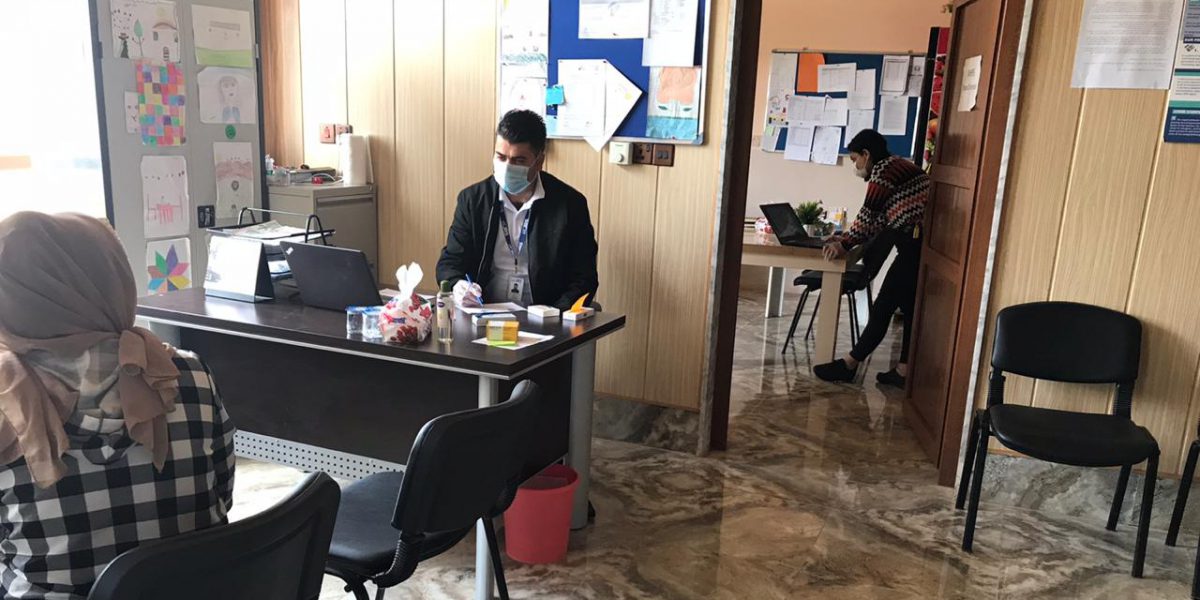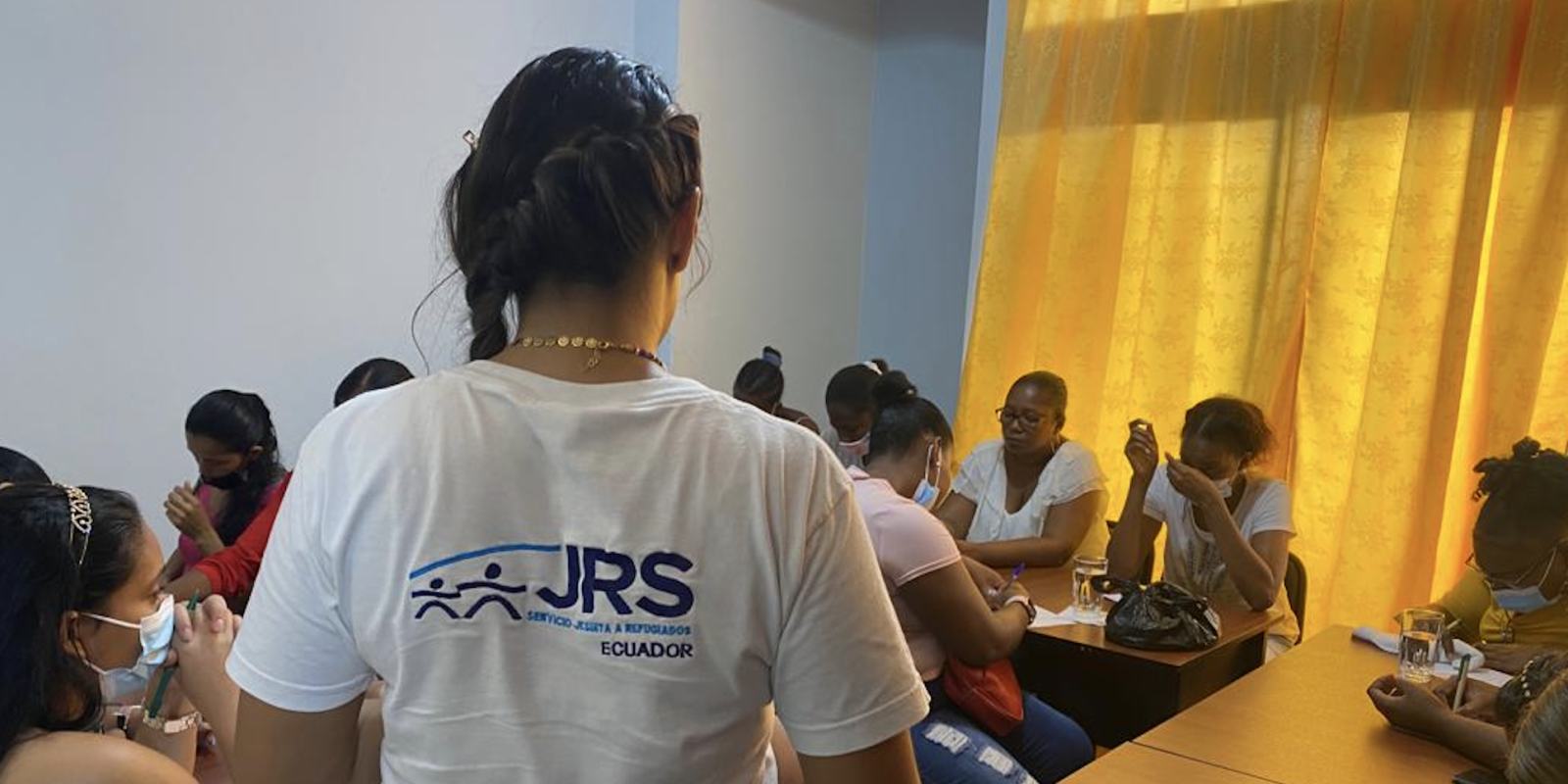
The challenging factors that contribute to forced displacement cause lasting mental health and psychosocial problems heightened by the disruption of relationships and practices that foster resilience and healing in individuals, families, and communities. With the challenges, fear, and isolation that COVID-19 have caused, the mental health and psychosocial support needs of forcibly displaced people have become even more acute.
JRS continues to provide mental health and psychosocial support (MHPSS) during this time. JRS is responding to both existing and new needs that have arisen as a result of the coronavirus. We are continuing in person support with Personal Protective Equipment (PPE) or remote support, depending on the context.
Integrating Psychosocial Support (PSS)
JRS is working on integrating PSS considerations into all response activities. At this time, teams are looking for signs of stress responses, helping people cope, and supporting people with preexisting psychosocial problems that may need additional care. JRS psychosocial workers are also teaching other field staff to provide compassionate care.
How is JRS doing this?
JRS CAR, Cameroon, South Sudan, and Uganda are launching radio shows that discuss PSS Considerations. In South Africa, Home Visitors equipped with PPE visit their most vulnerable clients who lack alternative care and support. JRS Jordan has established hotlines to provide remote PSS. In Mexico, remote community outreach is used to identify and support people in distress, and emergency rent and medication assistance are provided. JRS Thailand set up a call system to receive emergency cases and link them to caseworkers for support.
Mental Health
The pandemic may increase cases and symptoms of mental health and substance use problems. More than ever, JRS is monitoring closely and connecting to care clients with preexisting Mental Health and substance use problems. JRS is also monitoring the communities in which we work for people with emerging mental health and substance use problems that need support.
How is JRS doing this?
In Iraq, JRS mental health specialists are on call for urgent mental health problems. Transportation for clients to appointments and the purchase and distribution of medication is on-going while maintaining social distancing. In Lebanon, support groups through WhatsApp are conducted weekly by JRS Social Workers.
Child Protection
While adults are more likely to be infected by COVID-19, children are still vulnerable at this time. Children have a difficult time following protective measures, such as hand-washing and physical distancing, and the disruption to their environment or routines can have big impacts on their mental health. Measures put into place to prevent the spread of disease, such as “stay at home” orders, can increase psychosocial problems and protection risks for children including family separation, abuse, neglect, and child labor. JRS continues to monitor and support psychosocial and protection problems for children and find ways to advocate for their safety and wellbeing.
How is JRS doing this?
In Lebanon JRS Social Workers are sending weekly memos through WhatsApp on how families can deal with feelings and behaviors at home. JRS teams in Cameroon, CAR, and Uganda are broadcasting radio shows for caregivers and children with child friendly messaging about COVID-19, how to stay safe, and how to cope.
Gender Based Violence (GBV)
It is well documented that GBV increases during any emergency. During Covid-19, measures put into place to prevent and control the spread of disease (ex. physical distancing, restriction of movement, quarantines) can increase GBV risks, such as confining people with abusers and reducing survivors’ access to support. Women are also likely to take on additional domestic and caregiving responsibilities, especially in lockdown. JRS continues to accompany those who have experienced GBV and to closely monitor and help prevent further abuse.
How is JRS doing this?
JRS Ecuador has provided members of GBV support groups with phone credit so they can continue remote sessions and have on-going access to JRS staff that are trained in GBV prevention and response. They are also distributing emergency food, hygiene, and protection materials to GBV survivors so they have adequate supplies to support themselves and their families. JRS Colombia is conducting individual legal assistance for GBV survivors via telephone/video calls to orient and help clients access support and legal resources. They are also working with GBV survivors in lockdown with their abusers to safely transport them to women’s shelters, and are carrying out a social media campaign to increase community awareness on GBV risks and protection options during Covid-19.



